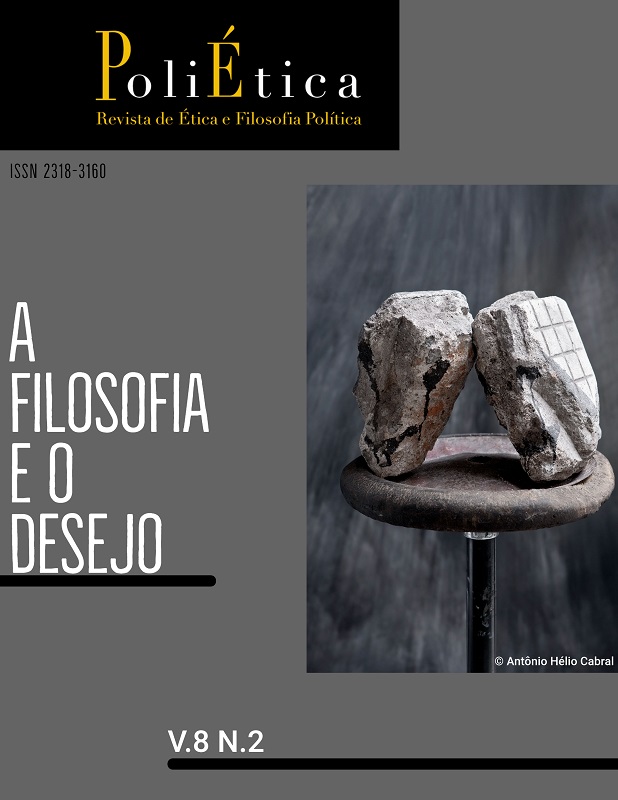The stoic answer for the wish for happiness
DOI:
https://doi.org/10.23925/poliética.v8i2.50850Keywords:
Happiness, Stoicism, Ethics, SageAbstract
This article aims to show the Stoic answer for the problem of the human wish for happiness. In Antiquity, philosophy used to deal with this question, taking for granted that the purpose of all human beings was happiness, and that the desire for it was natural in every man. Among the ancients, the Stoics also formulated an answer for this question, and this answer is framed by a complex ethical system. In this system, - centered in the figure of the sage - there is an explanation about what one has to wish, what one has to reject, and what is indifferent for the achievement of happiness. In sum, one has to desire and obtain virtue in order to be happy, rejecting vice, and chosing, among the indifferents, what is more akin to nature as a whole.References
BRENNAN, Tad. A Vida Estoica: emoções, obrigações e destino. Tradução: Marcelo Consentino: Edições Loyola, São Paulo, Brasil, 2010.
INWOOD, Brad. Os Estóicos. Tradução: Raul Fiker. Preparação e Revisão Técnica: Paulo Fernando Tadeu Ferreira. São Paulo: Odisseus Editora, 2006.


